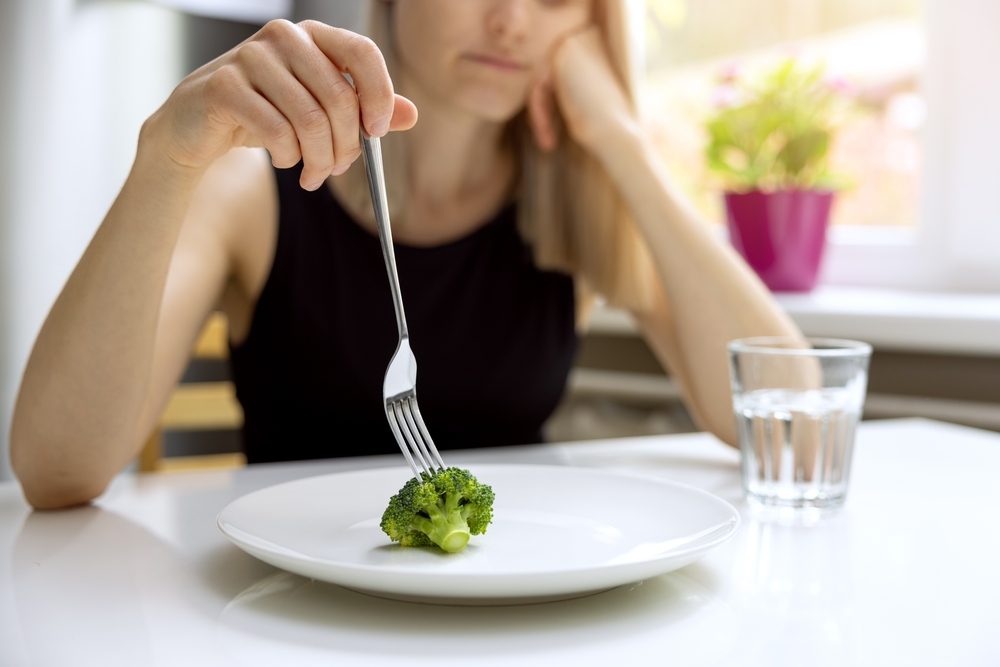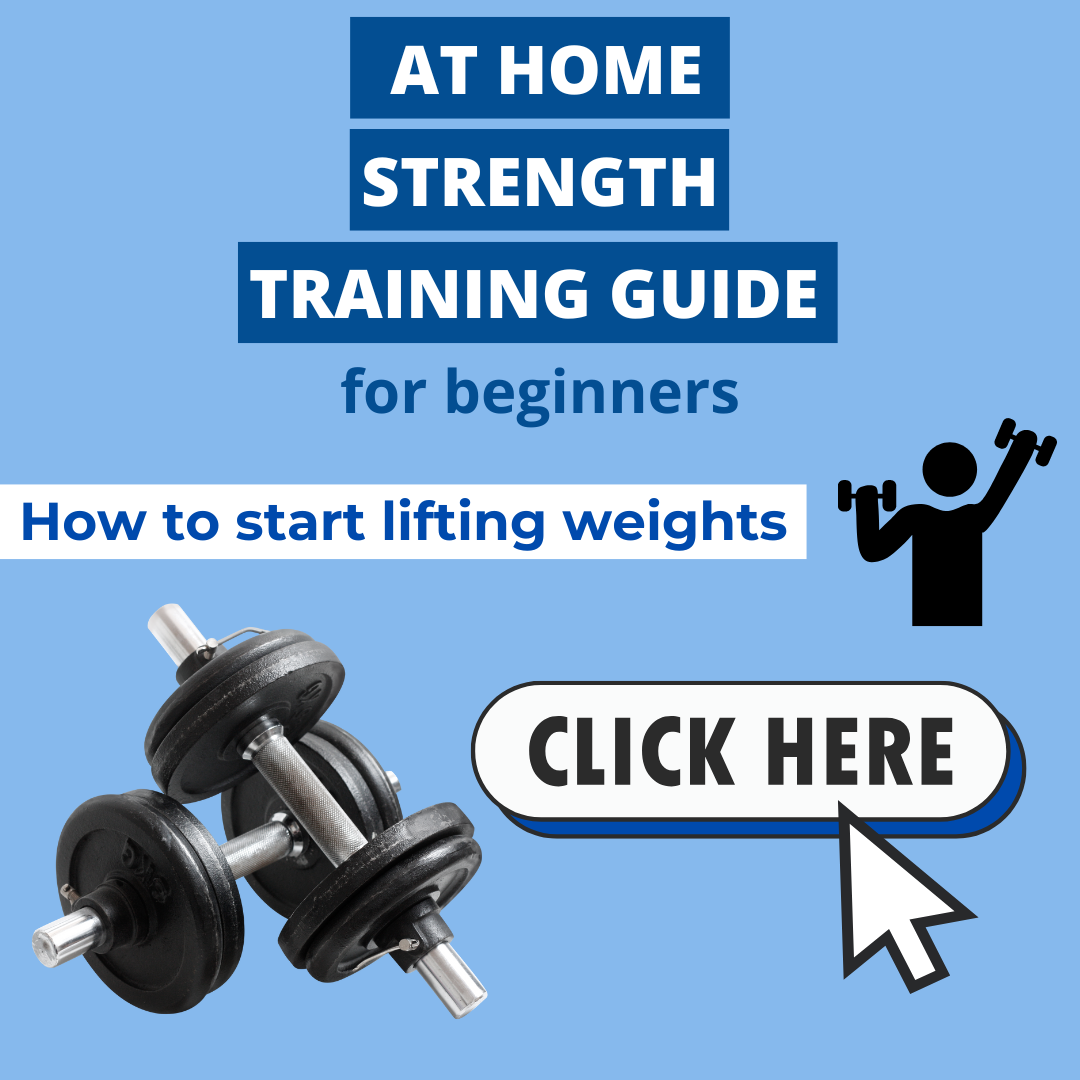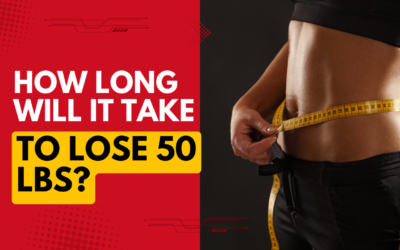Why You’re Not Losing Weight on 1,200 Calories a Day

How can it be possible you’re only eating 1,200 calories a day and not losing weight?! Are you eating 1,200 calories a day and not losing weight?
You feel like you’re doing everything right but CLEARLY, the scale thinks otherwise.
Here’s the thing…
That’s not even rough for some toddlers, let alone a full-grown adult.
The truth of the matter is that you not losing weight on 1,200 calories can only mean one thing…
You’re consuming more than the 1,200 calories you think you are.
Before you go calling me an asshole and start brainstorming all the reasons why I’m wrong, just hear me out.
Are you familiar with the golden rule of weight loss?
It’s that you have to be in a calorie deficit in order for it to happen.
It’s a literal scientific fact, just like 2 + 2 =4.
If you’re in a calorie deficit, you are GUARANTEED to lose weight.
So if you’re not losing weight it simply means you’re not in a calorie deficit.
It’d be like saying “I hate fruit but bananas are my favorite food.”
I’ve come up with a few questions to ask yourself about why you’re not losing weight on 1,200 calories and then what you can do to start seeing the results you want.
Why am I not losing weight but doing everything right?
1. Have you been in a calorie deficit long enough?
If you’ve only been in a calorie deficit for about 3.5 seconds, expecting this sensational body transformation just isn’t unrealistic.
Now, after about a few weeks of being in a calorie deficit (and actually being consistent with it) you should start seeing some type of progress.
Notice how I said progress and not just weight loss.
Sometimes, your scale weight won’t match up with the progress you’re truly making.
For example, let’s say you’re a beginner to strength training and working out.
You weigh yourself day after day but the number you see on the scale just won’t go down.
And it just doesn’t make sense, right?
Because you’re starting to look leaner and more defined when you look in the mirror.
Your measurements (which you want to take at least every two weeks) have also been going down.
Why?
You’re just building muscle and losing fat at the same time (aka you’re losing inches but not weight).
Know this:
Inch loss = fat loss, and that means you’re still making amazing progress.
What you’re doing is working and you just need to keep it up.
Eventually, the scale will catch up to the progress you’re making in the inch loss department.
2. Are you tracking your calories accurately?
You could just be making some mistakes when it comes to counting calories or tracking macros.
Many are easy to overlook and you may just not even be aware of them.
But the list below will help to ensure you’re tracking your calories correctly.
Use a food scale to measure your food
If I whipped out a box of rice and told you to put a serving size on your plate, how accurate do you think you’d be?
I can answer that question for you…
WAAAAAY OFF (and so was I when I didn’t count calories).
But that’s not your fault, it’s just part of being human.
We have a tendency to massively underestimate how much we’re truly eating.
So you say you’re not losing weight on 1,200 calories but are using a food scale and actually weighing out your food in GRAMS?
That’s the most accurate way to count calories.
When you try to “eyeball it” or use cups or spoons to measure your food, you’re consuming extra calories.
And on the surface, that makes it seem like you’re not losing weight on 1,200 calories.
You need to be doing this in grams.
Make sure you account for those extra bites, nibbles, and snacks
When you put a serving of peanut butter on your plate and lick what’s left over on the spoon, those calories count.
When you’re at work and you take a handful of M&Ms from your coworker’s candy jar every time you walk by, guess what?
Those calories count.
When you’re packing your kids’ lunches and eat the leftover cheese you didn’t put on their sandwiches…
Yep, those calories count as well.
You might think, “Ah, it’s no big deal. Those are only small things.”
But over the course of an entire day, all those “small” things can add up to hundreds of extra calories and bring you out of a calorie deficit.
If it’s going in your mouth (this is just food we’re talking about here 😂), it counts toward your calorie consumption.
Don’t let cooking oils trip you up
Cooking oils contain calories.
For example, one serving of olive oil has about 120 calories.
Let’s say you’re cooking your meals with that 2-3 times a day. That’s 240-360 additional calories that need to be accounted for.
And let’s be real here, if you haven’t been accounting for cooking oil, odds are you’re using way more than just a serving size (so it’d be even more calories).
Liquid calories count too
The calories from beverages don’t just poof and disappear into thin air when you consume them.
Even though you might not think so, your go-to chai tea latte from Starbucks contains calories.
Same thing goes with alcohol (it contains 7 calories per gram).
So just make sure you’re factoring beverages in when tracking your calories.
Measure your meats raw (as opposed to cooked)
You’ll be way more accurate weighing out your meats raw, as opposed to cooked.
Rice and pasta are other ones you’ll want to pay attention to (you should be weighing these out dry).
I used to really be thrown off by this one.
There was a while there where I would cook chicken and then weigh it out after the fact.
What do you think happened with the scale during this time?
My weight just didn’t budge and it was extremely frustrating.
But once I started weighing out my chicken before cooking it, I saw the scale start moving in the right direction.
3. What do your weekends look like?
You can be super strict and super regimented Monday-Friday.
But if you’re always giving yourself a free pass and your weekends just turn into one colossal cheat meal where you don’t track a single thing, it can easily explain why you think you’re only eating 1,200 calories a day and not losing weight.
Calories still count on the weekend, even if you don’t act like they do.
I will say this…
If you feel this need or urge to just let all the way loose and go buck every weekend, don’t restrict yourself so much during the week.
Make things look like this: 🥗🍟🏋️♀️🥗🏃🏾🌮🥗🥗🏋️♀️🍻
Instead of this: 🥗🥗🏃🏾🥗🏋️♀️🍕🍻🍔🍟🍾
Calorie cycling is also another option.
A better alternative to eating 1,200 calories a day
By now you know the reason you’re not losing weight on 1,200 calories is because you’re actually consuming more than that.
But regardless, aiming for 1,200 calories a day just is not a sustainable goal to have.
You end up feeling deprived, miserable, and like you’re in food prison.
Know what happens if something isn’t sustainable?
The results won’t be either.
So think of things like this…
If you can’t sustain it, you won’t maintain it.
Instead of trying to hit such a low calorie target, here’s a better alternative, one that will enable you to still enjoy life while achieving weight loss progress that actually sticks.
1. Ditch the 1,200-calorie crash diet goal.
Make this mindset shift first and foremost:
Take your 1,200-calorie goal and…
Punt it.
Kick it to the curb.
Stomp on it.
Throw it in the trash.
Whatever you need to do so you don’t think about ever eating that few calories again.
2. Have a more moderate calorie deficit
Calorie-wise, eat about 80% of your maintenance.
You can find your maintenance calories by using this calculator.
Within those calories, you’ll want to make sure you’re consuming enough protein (which you can do with this weight loss grocery list and its 15+ high-protein options).
Protein is important for the three primary reasons:
- It keeps you full and satisfied
- Eating it boosts your metabolism
- You need it to build/preserve muscle, which helps you lose more fat and is key to achieving a leaner, fitter, and more defined physique
And food-wise, here’s how to eat for fat loss.
Not losing weight on 1,200 calories FAQs
Is it possible to not lose weight on 1,200 calories a day?
In theory, technically, yes, it is scientifically possible to be not losing weight on 1,200 calories.
But unless you’re a 90 lb female, that’s not the case for you.
And even then, why would your goal be to lose weight anyway?
Wouldn’t you rather build some muscle and grow your glutes?
How quickly will I lose weight on 1,200 calories a day?
I know super fast weight loss would be ideal.
But oftentimes, the faster we try to do something and the more corners we try to cut, the more it just ends up biting us later on.
If you truly were to eat 1,200 calories a day, sure, it might lead to weight loss for a little bit.
But what happens long-term?
It catches up with you eventually.
You reach the point where you give in to your hunger and cravings.
You binge and overeat, which causes you to gain any weight you might’ve lost back.
Success over the long-haul is the name of the game.
You want to not only lose the weight you want but actually keep it off.
So set yourself up for success:
- Eat roughly 300-500 calories below your maintenance and get between 0.7g-1g per pound of your goal body weight in protein daily
- Strength train 3-4 times per week
- Making sure you get your daily steps in
Can 1,200 calories a day put my body into starvation mode and prevent weight loss?
There is no such thing as starvation mode.
Your body won’t somehow magically rebel against you and prevent weight loss from eating “too few” calories.
If you think the reason you’re not losing weight on 1,200 calories is because you’re not eating enough, here are a few people who would have something to say about that:
- Prisoners of war
- Truly starving people in impoverished countries
- Those suffering from an eating disorder like anorexia or bulimia
They’re all extremely underfed or consuming insanely low amounts of calories and still manage to lose weight.
Remember, you’re not losing weight on 1,200 calories because you’re not actually consuming 1,200 calories.
You’re eating more than that.
Why don’t 1,200 calorie diets work?
They don’t work because they’re not sustainable.
And if something isn’t sustainable, it won’t lead to long-term results.
When you think about weight loss ask yourself: “Is what I’m doing sustainable over the long haul?”
If not, you need to find a new plan.

What's up?
I’m Chad, I’m happy you’re here! I’m a certified personal trainer and my goal is to help you form practical, sustainable habits that lead to lifelong fitness results. If you want to lose fat, build muscle, and live a healthier, happier life then you’re right where you need to be. 💪🏾
Free resources
⬇⬇⬇







0 Comments